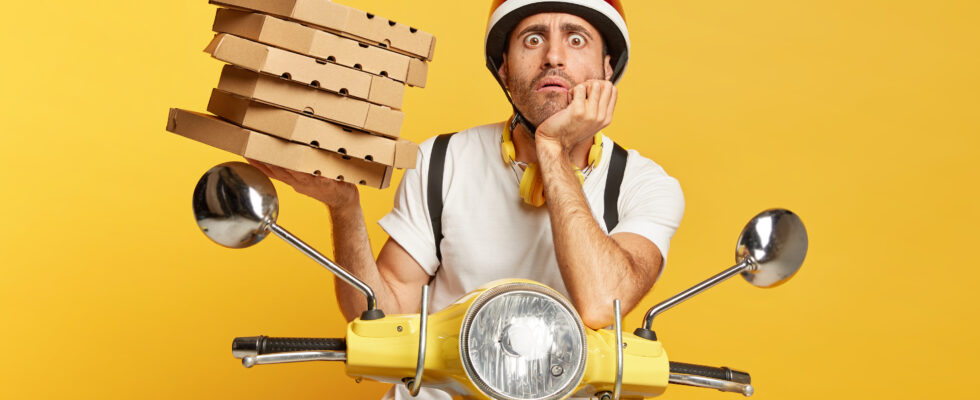A study reveals that with a few tricks, meal delivery services can allow consumers to reduce their energy intake with formidable efficiency.
Between the promotion of lower calorie products or smaller proportions, the solutions seem simple, but require an active commitment on the part of many players which goes against the habits acquired in recent years.
Growing obesity
Applications such as Uber Eats or Deliveroo have become essential in the cities in which they are available. Indeed, in the UK alone, their use has increased by 55% since 2015, and just under half of the population use them regularly. Obviously, eating habits have been greatly affected, and fast food, for example, has become much more accessible. But this obviously does not come without posing a problem… of size.
Indeed, for the World Health Organization, these services would be responsible in particular for an obesity crisis in the United Kingdom, which is on the way to becoming the most affected country in Europe. This observation is not to the liking of the British organization Nesta, which sponsored the work of Dr. Filippo Bianchi as part of a study presented at the European Congress on Obesity.
This involved designing a mock delivery app, which was then presented to 23,783 randomly selected participants. They were asked to choose a meal as they normally would, and the number of calories was measured at checkout. However, this application has undergone some modifications which have made it possible to obtain more than convincing results.
Delivery apps, major players in the fight against junk food?
By pre-selecting smaller portions by default, highlighting lower-calorie foods, and clearly displaying meal intake, the app led participants to reduce, on average, their calorie intake by 15% when ordering. . For Dr. Bianchi, it is a ” encouraging proof of concept that small changes in delivery apps could help many people identify and choose healthier foods “.
And the stakes are high, since studies suggest that takeaway meals contain on average at least 1,000 kcal, more than half of the recommended daily energy intake for an adult. In Dr. Bianchi’s study, the control group even ordered meals containing nearly 1,400 kcal.
However, the researcher is very confident: “ Testing similar initiatives with real restaurants and real catering companies has resulted in improved food quality “. Before adding: Delivery apps could reach millions and help us choose healthier food options “. Not sure if this is the priority for some at the moment…
Source : The Guardian

4